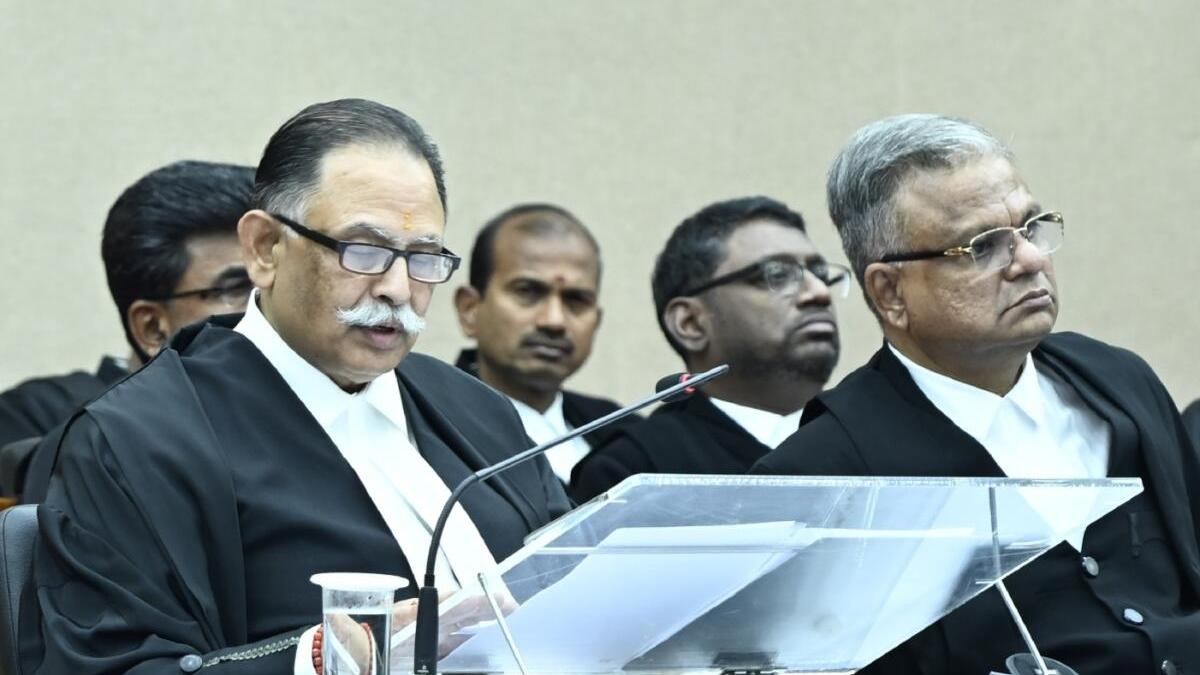Now Reading: Madras High Court Farewells Chief Justice K.R. Shriram
-
01
Madras High Court Farewells Chief Justice K.R. Shriram
Madras High Court Farewells Chief Justice K.R. Shriram

Swift Summary
- Madras High Court Chief Justice K.R. Shriram delivered a farewell address as he prepared to transfer to the Rajasthan High Court.
- He began his tenure at the Madras High Court on September 27, 2024, serving as its 53rd Chief Justice.
- In his speech, Justice Shriram praised colleagues in the Bench, Bar members, and court staff for their support and cooperation during his time in office.
- The Chief Justice described the institution as “a living testament to history,” emphasizing its significant legacy in legal scholarship and justice.
- He expressed gratitude toward sister and brother judges for their collegiality and commitment to upholding the law.
- Bar members were commended for their eloquence, advocacy skills, and interactive dynamic with the judiciary at Madras High Court.
- Registrar General S. Alli was specifically named among other staff who supported him throughout his tenure in administrative roles.
- advocate General (A-G) P.S. Raman highlighted Justice Shriram’s expertise in maritime law during his farewell address, especially citing a landmark Supreme Court ruling on demurrage related to Kochi Port Trust that benefited India’s shipping industry.
Indian Opinion Analysis
Justice K.R. Shriram’s departure from Madras High Court marks an critically important transition within one of India’s most historic judicial institutions. His remarks underline not only individual achievements but also emphasize institutional continuity-bringing attention to robust traditions of professionalism shared among judges, advocates, and staff alike.The mention of maritime law expertise highlights how specialization within legal sectors can have wide-reaching economic impacts-a point illustrated by Justice Shriram’s prior success with a precedent-setting case benefiting India’s shipping industry. This might serve as inspiration or precedent for continuing collaborative advancements between judiciary practices and industries directly influencing national infrastructure growth.
At broader levels-as historical entities such as Madras or Rajasthan courts undergo changes-their importance remains anchored in preserving high standards despite routine transitions reminding us of larger lessons shaping both Indian democracy and rule-of-law custodian work ethic principles Read More –























